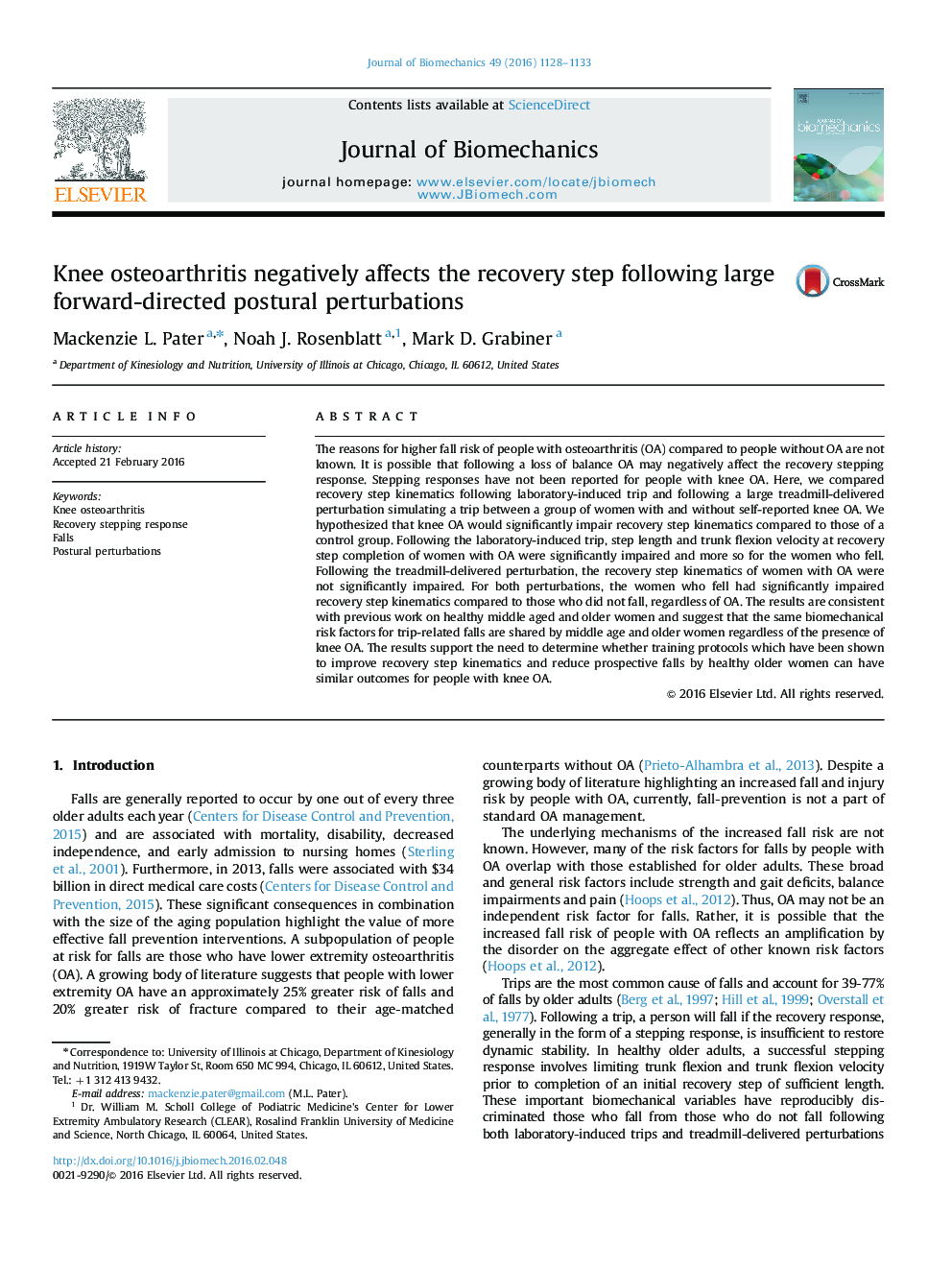| Article ID | Journal | Published Year | Pages | File Type |
|---|---|---|---|---|
| 871830 | Journal of Biomechanics | 2016 | 6 Pages |
The reasons for higher fall risk of people with osteoarthritis (OA) compared to people without OA are not known. It is possible that following a loss of balance OA may negatively affect the recovery stepping response. Stepping responses have not been reported for people with knee OA. Here, we compared recovery step kinematics following laboratory-induced trip and following a large treadmill-delivered perturbation simulating a trip between a group of women with and without self-reported knee OA. We hypothesized that knee OA would significantly impair recovery step kinematics compared to those of a control group. Following the laboratory-induced trip, step length and trunk flexion velocity at recovery step completion of women with OA were significantly impaired and more so for the women who fell. Following the treadmill-delivered perturbation, the recovery step kinematics of women with OA were not significantly impaired. For both perturbations, the women who fell had significantly impaired recovery step kinematics compared to those who did not fall, regardless of OA. The results are consistent with previous work on healthy middle aged and older women and suggest that the same biomechanical risk factors for trip-related falls are shared by middle age and older women regardless of the presence of knee OA. The results support the need to determine whether training protocols which have been shown to improve recovery step kinematics and reduce prospective falls by healthy older women can have similar outcomes for people with knee OA.
